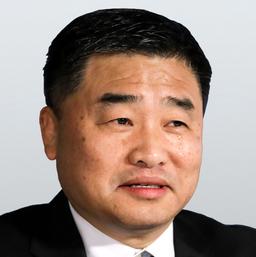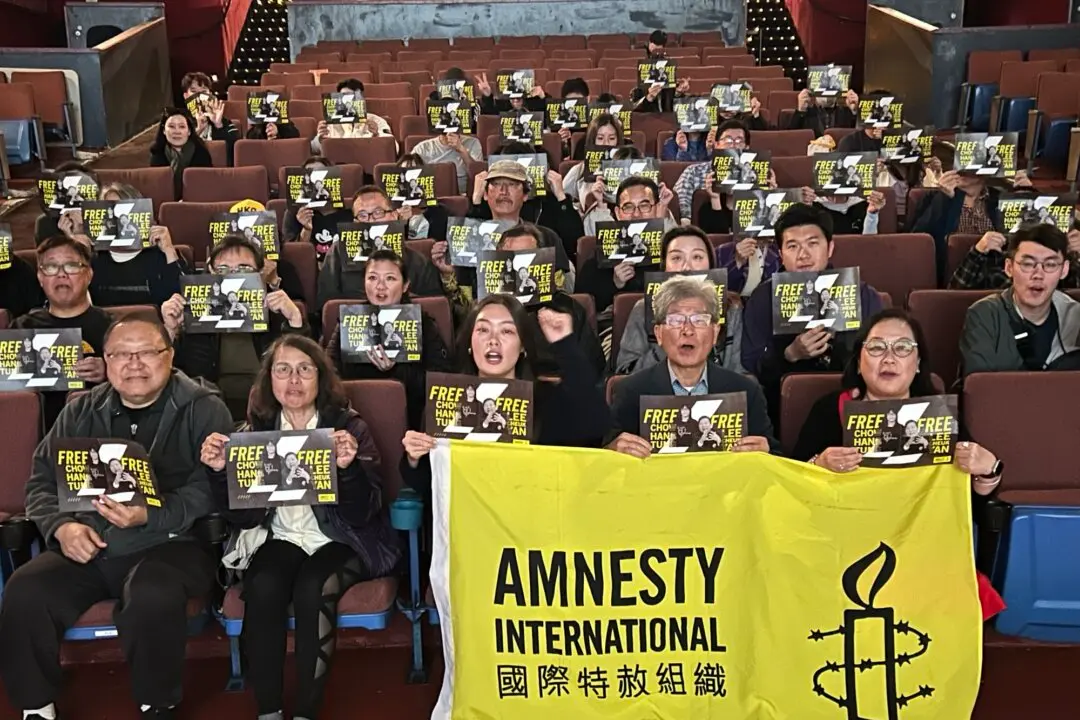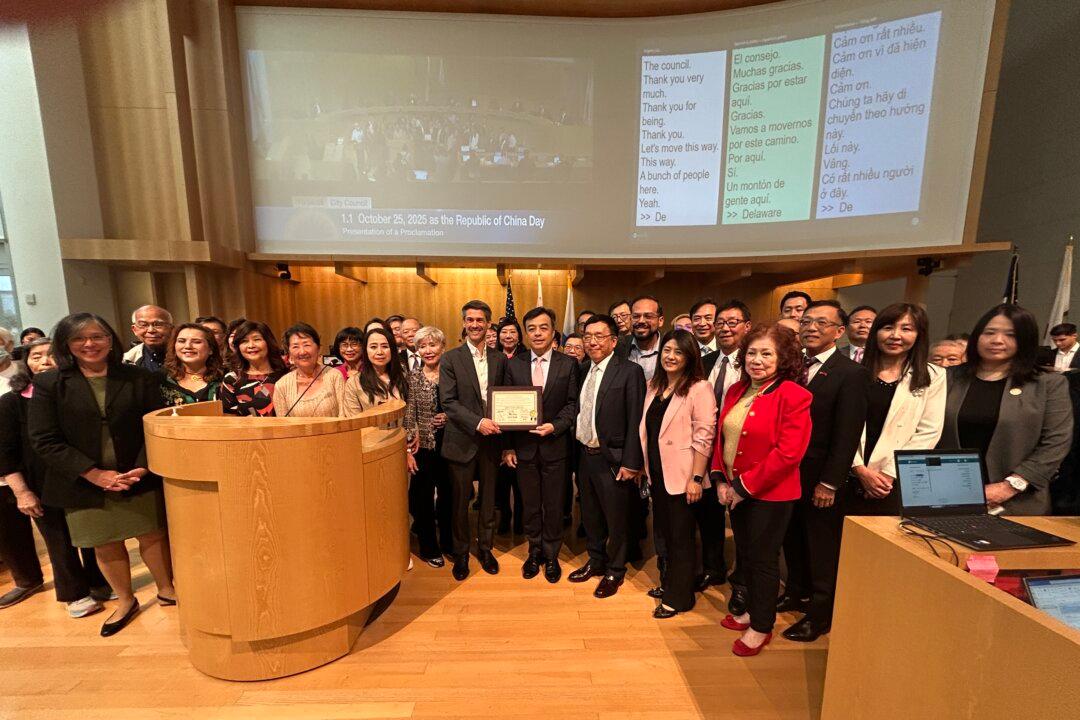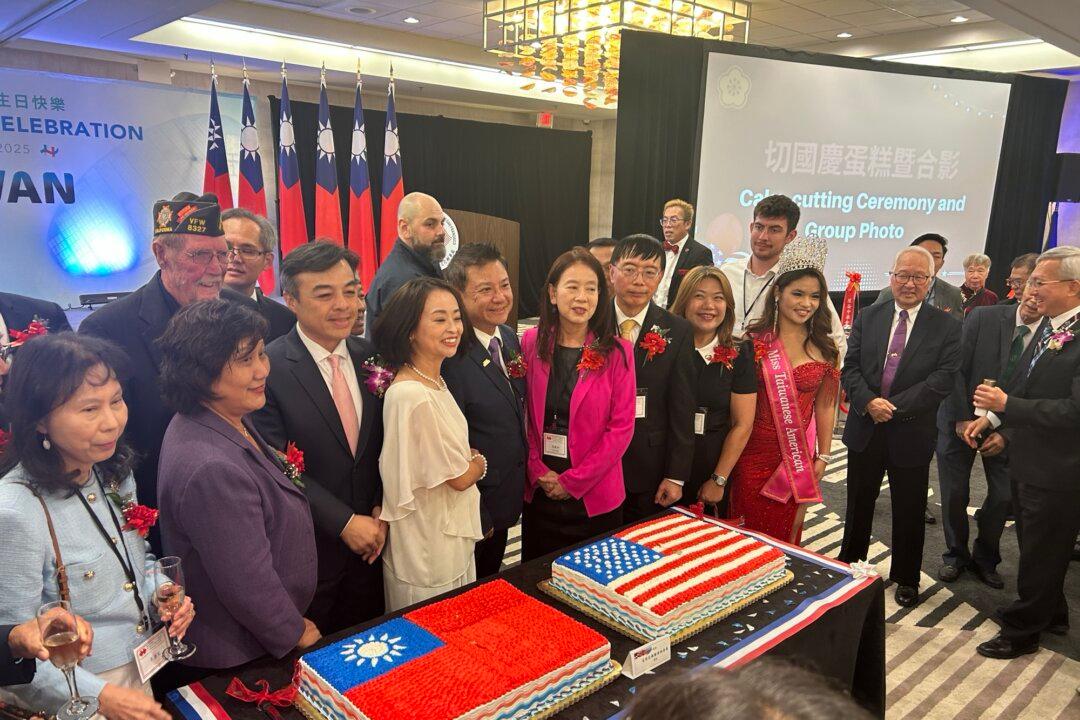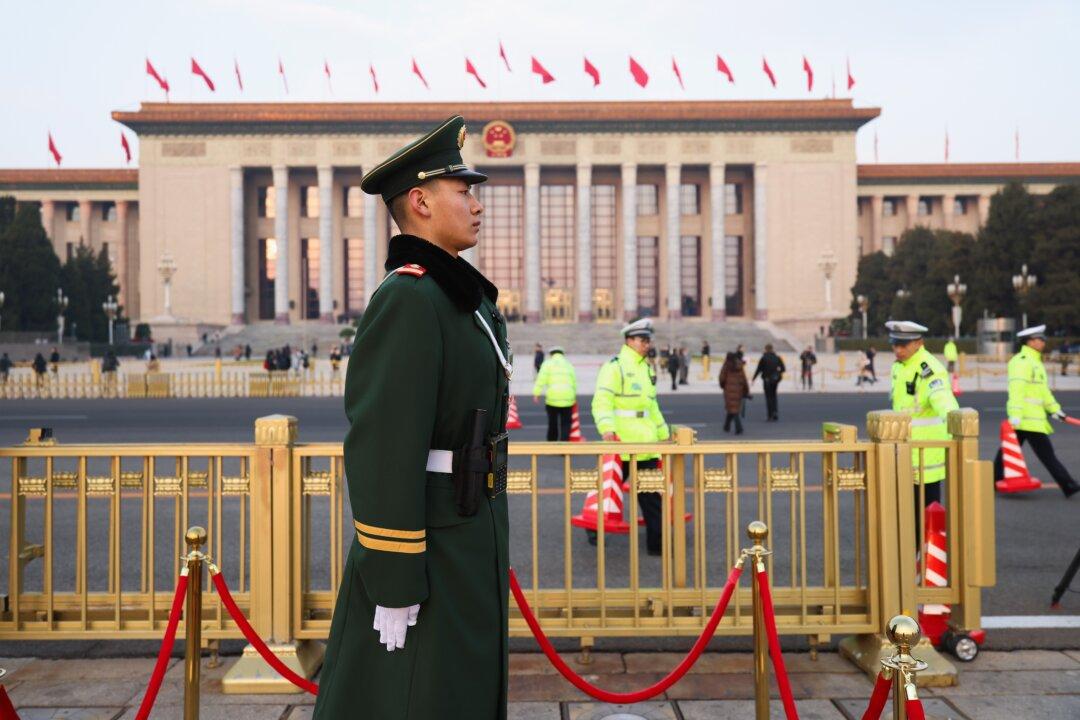Working as a content reviewer in China, Liu Lipeng was in charge of sifting through social media posts and flagging those that violated the Chinese regime’s censorship guidelines.
He saw many posts—which were slated for deletion—about Hong Kong’s 2014 Umbrella Movement, when masses occupied the city’s main thoroughfares to demand universal suffrage in elections. Upon Hong Kong’s transfer of sovereignty from British to Chinese rule in 1997, the city was promised free and fair elections—but Beijing had instead hand-picked candidates for the city’s highest official.
Watching videos from the 2014 protests, Liu saw with his own eyes Hong Kong people’s fight for freedom and democracy. Watching them made him feel eager and compelled for freedom in his own life.
“Hong Kong is the frontline for China’s freedom and democracy. It needs support from the world,” he said.
During his interview with The Epoch Times, Liu, who recently moved to California, wore a black-colored T-shirt printed with a yellow umbrella and the word “strong” underneath.
The yellow umbrella became an icon for the 2014 pro-democracy movement, after 10s of thousands of Hong Kong protesters used umbrellas to protect themselves from police who had fired tear gas in an attempt to disperse them.
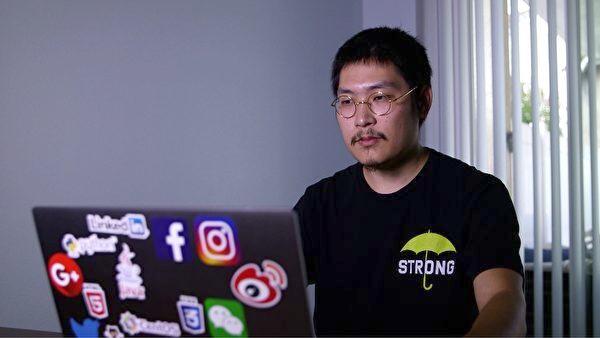
With Beijing recently implementing a national security law for Hong Kong—criminalizing acts deemed as subversion, secession, terrorism, and collusion with foreign forces with up to life in prison—international tech firms operating in the city suspended their reviews of government requests for user data, citing concerns about violating users’ freedom of expression.
“They know it is impossible for them to take a stand against the Chinese Communist Party’s new security law in Hong Kong,” said Liu.
The Past
Liu worked for two years as a content reviewer for Weibo, a Chinese social media platform similar to Twitter. He also worked for four years as a manager of content moderation for Leshi, a Chinese social media platform similar to YouTube.Liu described the role of content reviewers or moderators in China as labor-intensive and high-stress positions that were closely watched and controlled by the central government’s chief censorship agency, the Cyberspace Administration.
He said that reviewers in China need to remember many words, names, or subjects considered politically sensitive by the regime. He gave the following examples: Falun Gong, an ancient meditation practice with moral teachings based on the principles of truthfulness, compassion, and tolerance, that has been severely persecuted by the Chinese regime since July 1999; June 4, also known as the Tiananmen Square Massacre of 1989, when authorities sent troops and tanks to crush a student-led pro-democracy movement in Beijing;
Liu Xiaobo, a political dissident who won the 2010 Nobel Peace Prize; and Xi Jinping, the name of China’s leader, are all considered politically sensitive.
Chinese social media users have tried in many ways to avoid their comments related to Xi from being censored. As a result, Liu said there were more than 35,000 words, symbols, or different combinations of words and symbols related to Xi that were considered politically sensitive, and thus, slated for removal.
Liu said that in most job recruitment notices for this kind of role, companies say that “members of the CCP (Chinese Communist Party) and Chinese Communist Youth League are preferred.” Job requirements also include: “candidates need to have political sensitivities,” meaning, toeing the Party’s line.
Higher education backgrounds are usually required, but without requirements for specific majors, Liu said. Liu graduated from university with a major in human resources. He naturally became a target of headhunters for content reviewer jobs.
Liu believed that the real reason for the college requirements is because in China, college graduates go through political indoctrination in their education.
Liu said fear was a part of daily life for content reviewers in China: “you wouldn’t see it, but you know it’s there. It’s in the air.”
TikTok
TikTok and its Chinese-language version Douyin both belong to ByteDance, a Chinese social media company founded by Zhang Yiming in 2012. The social media platform allowing users to upload 60-second-long videos quickly became popular after its launch.In April 2018, ByteDance’s most popular social media program Neihanduanzi, was forced to stop its operations by one of China’s censorship authorities, the National Radio and Television Administration.
After the ban, ByteDance announced an expansion of its content reviewers team by 67 percent.
At the time, Liu explained that American users were accustomed to freedom of speech and therefore would be dissatisfied with their content being overregulated. He was ultimately passed over for the job.
Though he was a professional censor, Liu tried to expose the truth to the Chinese public. On January 25, Liu posted the American CDC (Center for Disease Control and Prevention)’s guidelines for preventing the spread of COVID-19, including frequently washing hands, via his account on Toutiao, another social media platform owned by ByteDance.
“I thought it was totally legit, not political,” said Liu. But his post was taken down by ByteDance’s censors.
The Chinese version of TikTok, called Douyin, also published a Chinese foreign ministry spokesman’s outlandish claim that COVID-19 was brought to China by the U.S. army.
Liu became disillusioned with life under authoritarian rule and decided to move to California with his family.
In May, he received a text message from a headhunter asking if he would go back to China to have a job interview with ByteDance again. Liu declined.
“We want to stay away from fear,” he said, with his wife and children standing around him.

